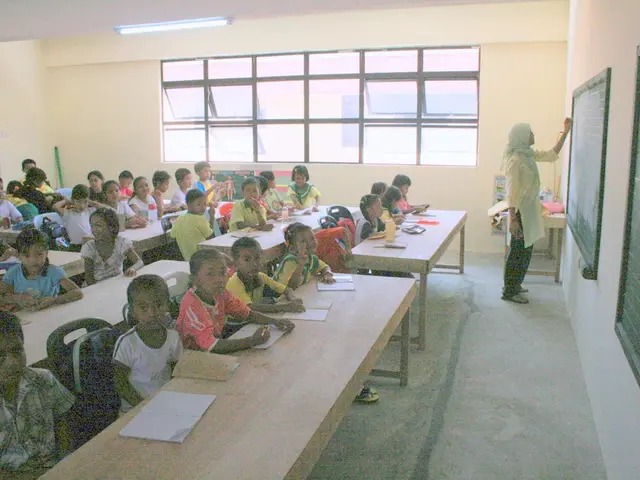Supporting Dementia Patients in the ER: A Helping Hand makes a Difference
Emergency Room Aid for Dementia Sufferers: Assistance in Crisis Moments for Dementia Patients - Efficient assistance in the ER for dementia patients
Navigating the bustling, stressful environment of an emergency room (ER) can be tough for anyone, but it can be especially overwhelming for older adults and those with dementia. Such experiences can potentially worsen their healing chances. But in three German clinics - Göttingen, Mannheim, and Berlin - volunteer ER guides are stepping in to help.
The biggest challenge often lies in a condition called delirium, a state of acute confusion that dementia patients are particularly susceptible to. Delirium may occur suddenly, for example after surgery, and usually lasts for several days.
Calming conversations and a helping hand
To prevent delirium, volunteers like Kerstin Schneider are on duty at the University Medical Center Göttingen. Their task is to help keep patients in the here and now. Schneider shares, "Many just want someone to talk to. Simple hand-holding often helps." For instance, a dementia woman stopped screaming when Schneider sat next to her.
"I don't wear a lab coat; I simply approach people without nurses or doctors introducing me," Schneider explains, ensuring she's not associated with the medical staff. Like medical professionals, however, volunteers are bound by confidentiality.
Joining forces
In Göttingen, Schneider is one of two current ER guides, with eight more volunteers set to join soon - students and seniors. No specific medical training is required. Schneider, however, is a retired nurse and is actively involved in other volunteer organizations. As a guide, she typically works twice a month for six to seven hours on days of her choice.
The essence of empathy
In Göttingen, the offer of ER guides has been well-received, even if not everyone believed in it at first. The nursing staff in the ER was initially skeptical, fearing even more people would crowd the narrow corridors. However, "now colleagues are happy when we come because we take work off their hands," Schneider shares.
Rethinking Emergency Care
Since September, guides have been on duty in Göttingen. Since then, 30 to 50 people have been cared for. The potential for this initiative is much greater, says the medical director of the Central Emergency Room at UMG, Sabine Blaschke. According to statistics, around five to ten percent of people in ERs are affected by dementia or delirium, a trend that continues to rise.
The groundbreaking Project
This ongoing project builds on an initial pilot project conducted at Berlin’s Charité in 2019. Its primary aim is to boost recovery chances. For example, people who experience delirium have a significantly higher risk of death. Regular feedback rounds with questionnaires are held, with navigators and nursing staff evaluating the project. Now, there's a bag with books and games for the patient and the guide to engage in activities together.
Charting the course ahead
Plans are already underway to continue the four-year trial beyond 2025 in Göttingen. The project has also gained traction at the Charité, with officials stating they will "do everything to continue it." Schneider even hopes, "Perhaps similar offers will be available nationwide soon." However, this is not currently covered by health insurance providers.
Insights:
While there's no specific data on the exact impact of volunteer ER guides in Göttingen, Mannheim, and Berlin, interventions that boost awareness and support, such as community-based strategies, can generally contribute to better healthcare outcomes for patients with diverse instances, including dementia. By providing emotional support and facilitating communication between patients and healthcare staff, volunteer guides could potentially help dementia patients feel more secure and less stressed in the ER. Further research would be needed to determine the exact impact of such programs.
In the ongoing project, books and games aimed at mental-health and health-and-wellness are included in a bag for volunteers and patients to engage in, signifying a focus on promoting mental health within the ER environment ( science ). The community-based strategy of having volunteer ER guides, such as Kerstin Schneider, helps dementia patients by encouraging calming conversations and offering a helping hand to keep patients grounded and reduce instances of delirium ( employment policy ).








